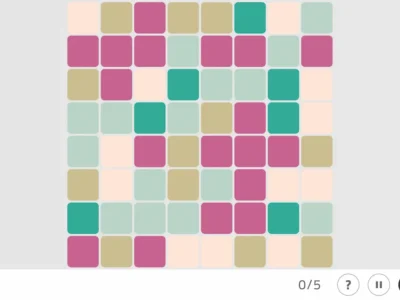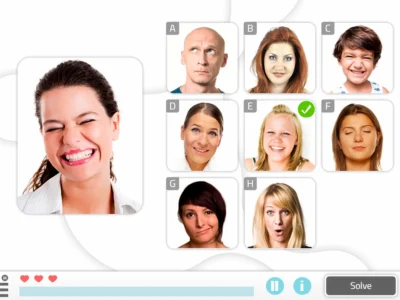Do authoritarian or fundamentalist people always have neurological damage? Psychologist Javier Tomás offers a brief neuropsychology of authoritarianism.
Scene in a supermarket.
– I only have one loaf of bread, could you let me go ahead, please? – says a girl with an Arabic accent.
– No, no. I’m sorry, I’m in a hurry.
The lady finishes scanning her half-full cart, and the girl pays for her loaf of bread and leaves. The lady is putting things into her cart, looks at me – lucky she didn’t mistake me for a Russian or an Irishman – and says to me:
– These people come here and think that we all have to follow their customs.
I don’t say anything. In reality they are our customs. Or perhaps everyone’s. I just ask myself the question. How does our brain operate when people display this kind of behavior?
Apparently, this behavior has to do (it seems obvious to me) with the prefrontal lobes. The most extreme form of prejudice, authoritarianism (which is not a religious, political, or origin-based behavior per se, but rather a coping style) has to do with the way we doubt. The explanation given by Asp, Ramchandran –not to be confused with Ramachandran- and Tranel (2012) is as follows:
- When we evaluate we tend to form a judgment of truth that involves doubt. This process occurs in two stages: mental representation and evaluation.
- All represented normative ideas (phase 1) are initially considered true (the brain tends toward simplification). However, a secondary psychological analysis then occurs (the evaluation, phase 2) which can generate doubt.
- The representation initially believed must be labeled as “false value” in order to produce doubt and be re-evaluated (as we saw in the previous post, one of the main areas involved in this process is the anterior cingulate cortex).
- The prefrontal lobes would be in charge of labeling the belief as “False value”.
- Based on Damasio’s somatic marker hypothesis, we can say that this re-labeling as “false value” in evolutionary terms has been (and remains) of an emotional type (perhaps as a vestigial evaluation of the “intruder” entering our territory?).
Therefore, we could say that authoritarianism partly arises as a deficient error-detection process for normative errors. This produces beliefs that do not generate reflective judgment, since they do not produce internal conflict (there is no error detection) due to prefrontal deterioration. This damage would not, in principle, affect working memory (nor intelligence).
Antisocial behaviors
The antisocial behaviors associated with this deterioration would be explained because representations of inappropriate behaviors are not properly filtered in the post-Rolandic association cortices.
Empirically, these authors have observed an increase in religious beliefs (even the emergence of such beliefs), authoritarianism and fundamentalism in patients with deterioration in the ventromedial prefrontal cortex.
This increase is significant compared to other neurological populations, even to patients with frontal but non-prefrontal damage. Also compared to patients with traumatic medical events that are non-neurological.
To all this we can add environments that favor rigid and stereotyped norms, with no dissenting or skeptical member of the main doctrine. From a neurobiological point of view this continuous modulation (Education? Brainwashing?) of the amygdala produces a “short-circuit” mechanism (a fast action pathway).
The amygdala would activate and the cingulate cortex (responsible for reducing excessive activations of the amygdala) would not engage mechanisms of error control because the prefrontal lobe has not established the possibility of a false judgment. Consequences? Besides those mentioned, repetitive behaviors (impulsivity) and in many cases aggression. We can see it when within these circles the norm is broken: the offender is immediately punished harshly.
Punishment is seen as positive
This punishment is seen as positive within the reference group, which promotes that the orbitofrontal cortex establishes negative contingencies with the “out-of-norm” behavior (fear). And a positive contingency relationship between the way of judging the offender and the emotion it entails (acceptance by the group—empathy, perception of power—hedonism, etc.) These contingencies build the self of the authoritarian person.
And they build it in a biased way because there is no insight into one’s own defects, exactly like patients with damage in the ventromedial prefrontal cortex. (Note: The ventromedial prefrontal cortex is considered to be part of -in some texts overlapping with- the orbitofrontal cortex).
The insula
When we see other people suffer this region activates producing the first vestiges of emotional empathy. In fact the insula has been proposed as an important node of the different networks of mirror neurons.
It would be interesting to study how this process (seeing a person “who has broken the rules”) affects other areas involved in empathy. Would there be significant activation of the insula? The insula is a structure known for being the most important center of bodily representation (alongside the somatosensory cortex).
All of the above does not mean that all authoritarian or fundamentalist people have neurological damage, but it helps explain the pathways that seem to be involved in this phenomenon.
By the way, the woman met a friend and spent 15 minutes talking with her.
If you liked this post about neuropsychology of authoritarianism, you may also be interested in the following articles:
“This article has been translated. Link to the original article in Spanish:”
Una breve neuropsicología del autoritarismo







 Worksheet for working on spatial orientation with children: Organize Your House
Worksheet for working on spatial orientation with children: Organize Your House
Leave a Reply